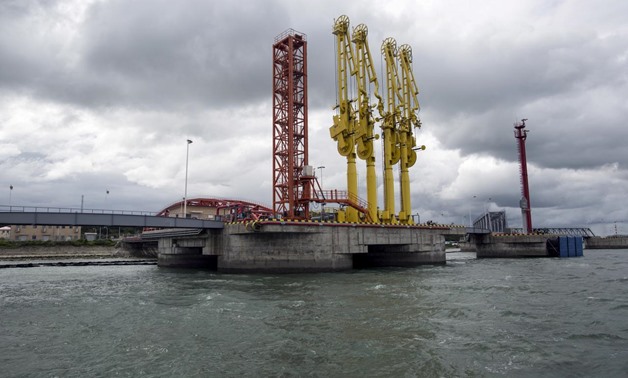
FILE PHOTO: A jetty for oil tankers is seen on Madae island, Kyaukpyu township, Rakhine state, Myanmar October 7, 2015. REUTERS/Soe Zeya Tun/File Photo
TOKYO - 30 July 2018: Oil prices rose on Monday with U.S. benchmark WTI moving higher after four weeks of declines, but gains were limited as the fallout from trade tensions weighed on markets.
Brent crude futures rose 13 cents, or 0.2 percent, to $74.42 by 0638 GMT, after trading lower most of the Asian session. Brent rose rose 1.7 percent last week, the first gain in four weeks.
U.S. West Texas Intermediate (WTI) crude futures were up 31 cents, or 0.5 percent, at $69 a barrel. WTI fell 1.3 percent on Friday.
The U.S. economy grew at its fastest pace in nearly four years in the second quarter, but trade tensions remain high between Washington and Beijing despite an easing between the United States and the EU.
“Oil prices could struggle this week,” said Stephen Innes, head of trading APAC at OANDA Brokerage.
“Concerns around the U.S.-China trade wars continue to weigh on prices, while the halt in Saudi shipments through the Red Sea waterway has seemingly failed to provide a bullish fillip,” he said.
Saudi Arabia last week said it was suspending oil shipments through the Red Sea’s Bab al-Mandeb strait, one of the world’s most important tanker routes, after Yemen’s Iran-aligned Houthis attacked two ships in the waterway.
U.S. energy companies added three oil rigs in the week to July 27, the first time in the past three weeks that drillers have increased activity, data released on Friday that showed.
Hedge funds trimmed their bullish wagers on U.S. crude for the second week in a row to the lowest in nearly a month, data also showed on Friday, as oil prices remained volatile amid trade tensions and geopolitical risks.
The speculator group cut its combined futures and options position in New York and London by 11,362 contracts to 412,289 in the week to July 24, the U.S. Commodity Futures Trading Commission said. That was the lowest level since late June, the data showed.2.4 percent.
Russian energy minister Alexander Novak said on Friday the market remained volatile and responded to verbal interventions, adding that the market had priced in risks related to U.S. sanctions against Iran.
This week brings a raft of data and central bank meetings that may give investors and indication of the state of the global economy.
The U.S. Federal Reserve meets on Tuesday and Wednesday and is widely expected to stand pat while reaffirming the outlook for further gradual rate rises.
A Bank of Japan policy meeting that ends on Tuesday has taken on greater importance amid talk it could tweak its massive asset-buying campaign.

Comments
Leave a Comment